Tribune Investigation: How poor communication delayed county's mental health crisis center
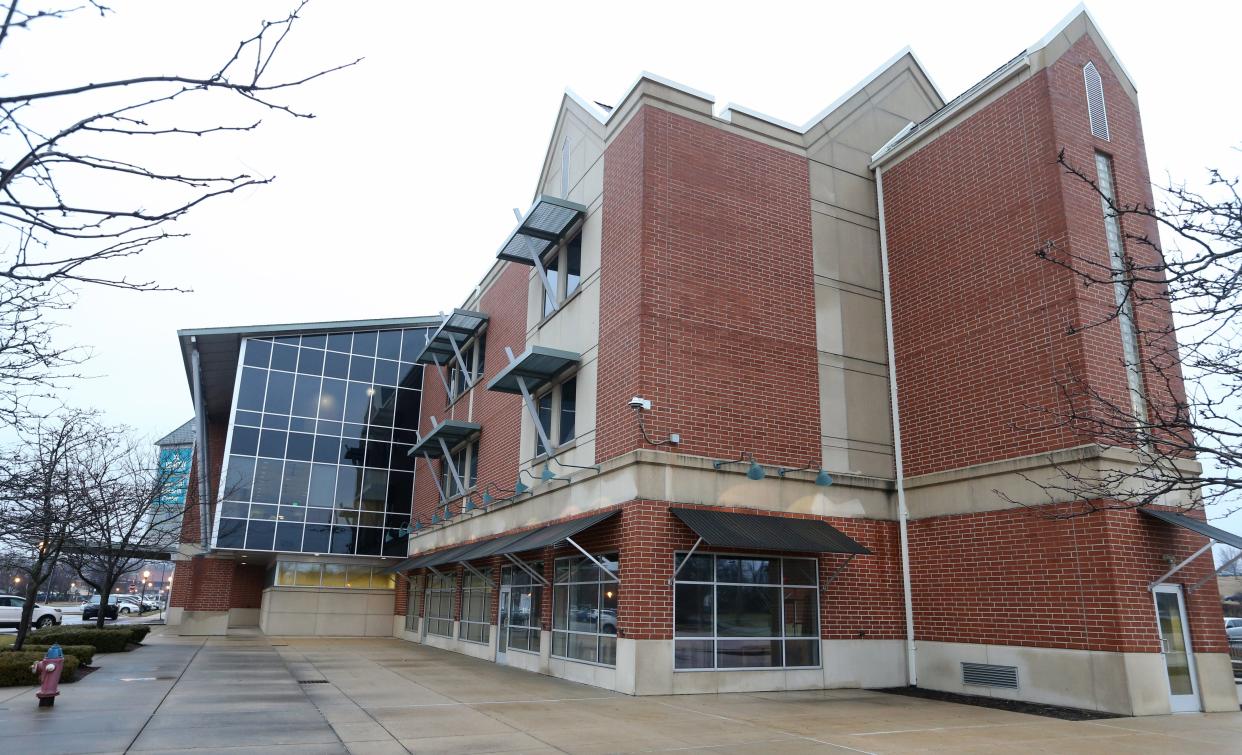
SOUTH BEND — The delay in creating a behavioral crisis center in St. Joseph County — which stalled at a commissioners meeting on Dec. 20 — may come down to what officials didn’t know about the long-brewing project.
No matter that multiple partners in the county, city of South Bend, law enforcement and Oaklawn and advocates from Faith in Indiana had been planning the center for at least two years.
No matter that an advisory group for the center was meeting and sharing details at least monthly.
Commissioners Carl Baxmeyer and Derek Dieter and county attorney Mike Misch say they didn’t see an agreement with Oaklawn to build and run the mental health crisis center until just days before it came for the Dec. 20 vote — a pivotal date because it neared the year-end deadline either to approve the agreement or start the pandemic relief funding request all over again.
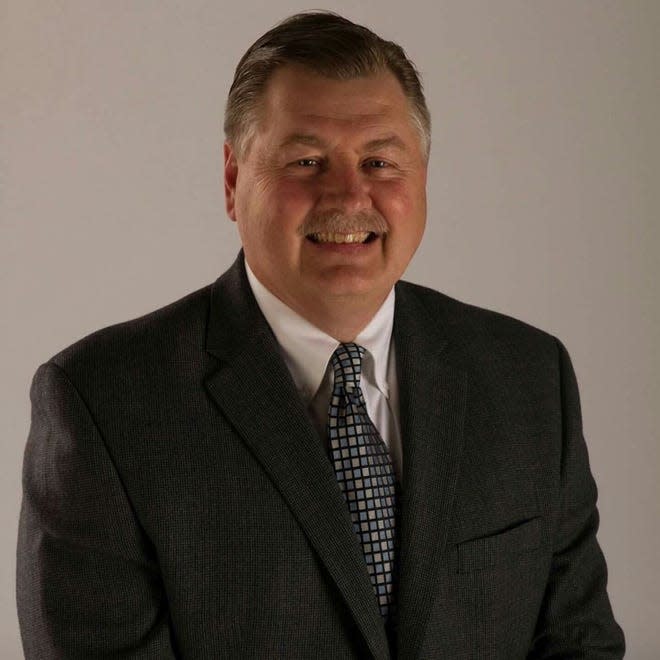
The commissioners delayed the measure. That sparked ire from 32 people who spoke passionately that day, urging the officials to move it forward, to save lives.
Now the center will be built and financed for the first year, thanks to funding South Bend Mayor James Mueller pledged after that meeting. And now all three commissioners suggest they'd agree to support beyond that if a range of questions are answered.
Baxmeyer and Dieter had said they weren’t killing the project in the first place. They had lingering questions about how the project, at a total cost of about $5.6 million over three years, would be financially sustained. They say they weren’t kept in the loop in what, by all accounts, is a complex project.
This month, Dieter told The Tribune he didn’t want the center to start operating then have to suddenly shut down because it ran out of money. Though the center would still lean on county dollars, organizers have pointed out prospects that are now growing for state and federal funding for mental health concerns.
Dieter, a retired police officer, has further questions about how the center would operate, including whether police or security would be present to ensure safety when individuals are admitted. Oaklawn, a mental health provider who'd run it, says the center would have metal detectors and do safety assessments.
Misch has told The Tribune he needed far more than the four days he had to address his laundry list of issues with and questions about the agreement, or contract, such as the need to insert provisions to reclaim resources if one of the parties doesn’t provide what they’d promised. He has said that he didn’t get the contract until Dec. 16, though St. Joseph County Health Officer Dr. Bob Einterz’s letter presenting it to commissioners is dated Dec. 12. Regardless, Misch said he was expecting some grace time because it's natural for a multi-year, multi-party, multi-million-dollar project to have some revisions.
"If they were ready to move forward in September, why didn’t I see a contract in September or October that we could have worked on?" Misch asked.
Rebekah Go, one of the Faith in Indiana volunteers who've guided the project forth, said the contract may have come earlier, but that was delayed because Oaklawn took the lead on the center's design. Officials have said the switch from Beacon Health System, as lead, saved money because Beacon would have had to follow more costly hospital regulations.
On Friday, Baxmeyer admitted, "I didn't appreciate the urgency at first."
He explained that he was working from his prior understanding — going back several years ago when he worked as a LaPorte County planner — that the dollars that the county council had previously approved for the center would be carried over into 2023. But, after the Dec. 20 meeting, he said he then learned that the state rules have since changed and that the money did indeed have to be committed by the year-end deadline.
Could commissioners have pried and asked more of the center’s organizers before the deadline?
Go said she expected more “due diligence” from public officials.
“It’s a two-way street," Go, a single mother who also works full-time, said. “Here I am doing my homework because I think it’s good for the community. And I’m not being compensated for it.”
On the other hand, she said, she appreciates that Baxmeyer met with a few Faith in Indiana members, at their invitation, on Jan. 3. She said he apologized for not doing his due diligence and agreed that he could have been more proactive. Meanwhile, he pointed out worthy criticisms of an agreement that, Go admitted, could have been more complete.
Still a chance?
There may be life for the crisis center beyond the first year, but no guarantee.
Developments since Dec. 20 make commissioners feel better about a possible deal, including Mueller’s announcement in early January to earmark $2.66 million of the city’s American Rescue Plan money for building expenses and the first year of operations, Misch said.
In addition, Misch said he recently learned Beacon Health System would lease the building space for $1 per year, an offer Einterz had told The Tribune about in November.
Dieter said he'll consider the center if all of the questions can be sorted out, saying, “We are working on what’s the next step to do.”
Baxmeyer, acknowledging that partners put "a lot of work" into the project, said Friday that commissioners have committed to reconvening the partners to develop a new working agreement.
Commissioner Deb Fleming told The Tribune early this month that she would support the center if the county council approves funding for it.
But it’s still uncertain whether the county council will approve funding for the center. That's because there are four new members who weren’t there in December 2021 when the prior council voted 9-0 to approve $2.7 million of American Rescue Plan dollars for the project.
There has been a fear among some, including Einterz, that the newly elected county council wouldn’t support the center — at least not by a majority.
Oaklawn CEO Laurie Nafziger is more optimistic now.
“I feel hopeful, because it seems like they’re willing to come to the table and talk,” she said, referring to her recent interactions with Baxmeyer, Dieter and Misch. “I’m willing to talk and share more information.”
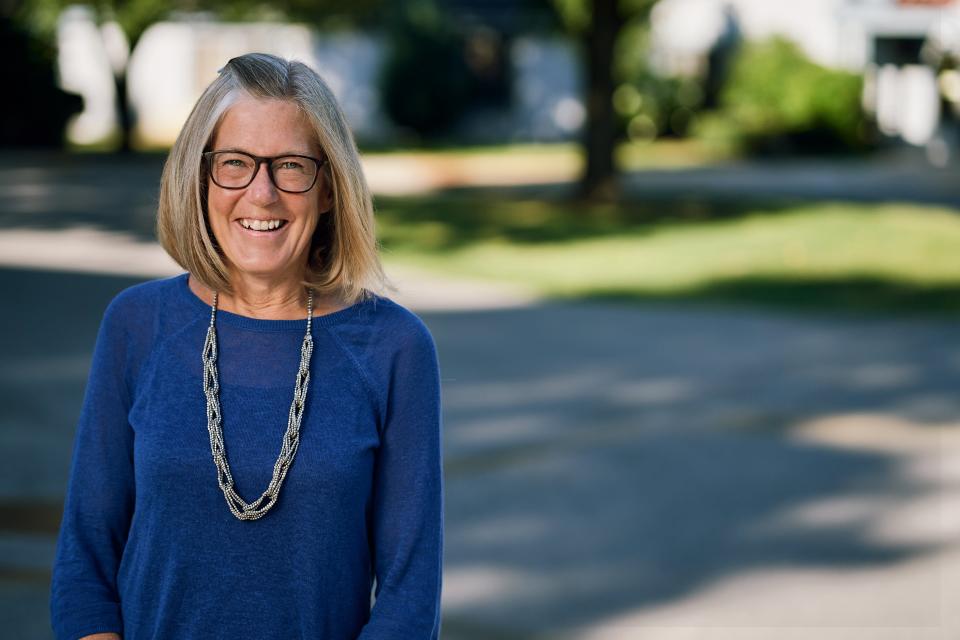
What's the crisis center?
In early January, Oaklawn created a plan for officials that more fully explains what the crisis center would be, how it would work on a daily basis, what it would cost and from where the potential funding would come. The plan includes a design for the physical space. In essence, Nafziger said, the document aims to answer some of the questions that county officials had.
“A lot of people weren’t fully informed,” Nafziger acknowledged. “Fair enough. Here it is.”
Oaklawn would run the center in space that it would renovate in the existing Epworth Hospital on Niles Avenue in South Bend.
The behavioral crisis center would focus on emergency mental health care and would treat walk-in patients for a period of 24 hours. It would mesh with a beefed-up mobile crisis response team and give those suffering from mental crises an alternative to the emergency room or jail.
As for capacity, it would have 14 reclining chairs, rather than beds, for patients to spend their time in a sort of living room. Some chairs would have barriers because some patients may need protection from stimuli.
Staff at the center would be made up of a multidisciplinary team of social workers, peer counselors and psychiatrists. Those workers would provide risk assessments, prescribe medication as needed and help connect patients with on-going care resources.
Based on crisis centers elsewhere in the country, Oaklawn expects that most people would be discharged into the community within a matter of hours.

Did they communicate?
Baxmeyer started his role as a commissioner in August 2022, replacing fellow Republican Andy Kostielney, who resigned and had expressed support for the center. Also that month, Dieter and Einterz were planning a meeting with other leaders for updates on the crisis center. That meeting was canceled as Baxmeyer became president of the commissioners. And Baxmeyer went on to represent all of the commissioners at a different meeting on the center in mid-September with several stakeholders.
But Baxmeyer said the input he got after that lagged until December.
On Dec. 17, Baxmeyer told organizers in an email that he hadn’t yet gotten answers to questions that he’d raised at the September meeting about funding, a potential operating loss for the center and Indiana’s changes to its Medicaid reimbursement rules.
Baxmeyer also wrote in that email that, at the September gathering, he’d called for a group to meet regularly about the county’s needs for mental health and housing.
“It was my intent to look at the full continuum of needs and ensure that the county addresses those needs in a comprehensive, well thought out, and fiscally responsible manner," he wrote. “I have not heard back from anyone related to that request.”
Einterz, the county health officer, has told The Tribune that he likewise believes there needs to be a comprehensive approach to the county’s mental health and housing needs. He said he’s even suggested a point person to ensure efforts are collaborative and integrated.
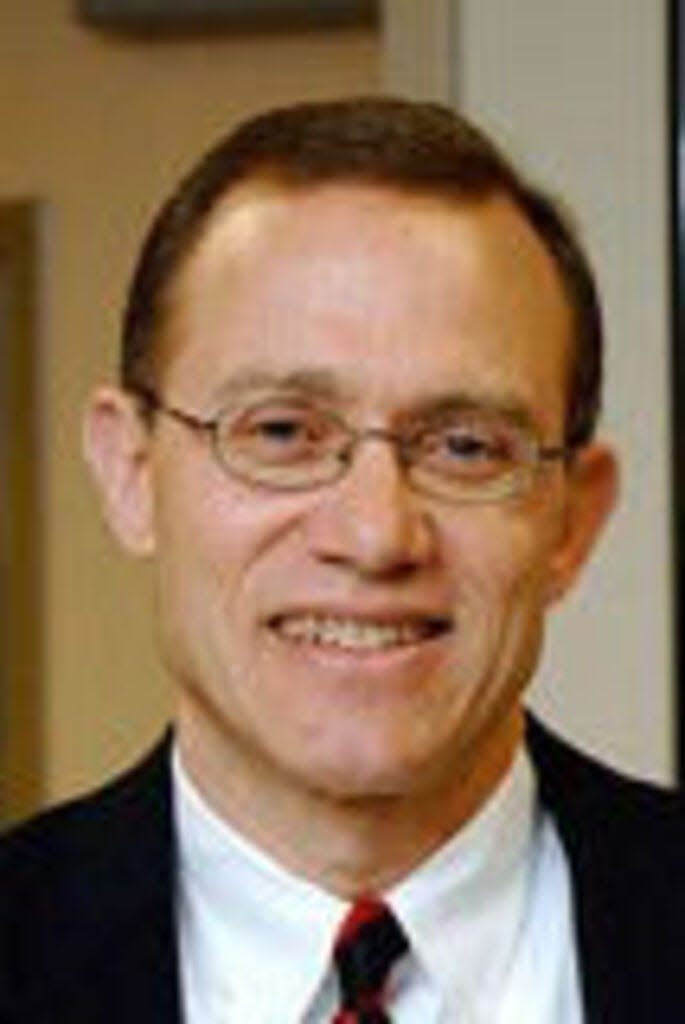
The crisis center’s advisory board has been meeting at least monthly — both before and after the September meeting of stakeholders. It includes someone from the offices of the South Bend police chief and mayor, county sheriff, the health department and others, which are several but not all of the stakeholders that were in the September meeting.
Dieter pointed out that the advisory board meetings have gone on without council members or commissioners and claimed commissioners heard nothing about the crisis center from September to December when the contract was submitted.
Einterz said he calls the advisory board meetings together. He said he hasn’t specifically invited commissioners but that commissioners would have been welcome to drop in on any of those meetings, adding, “Nothing is secretive about this.”
“We’ve responded to any questions we’ve ever been asked,” Einterz said.
South Bend Police Chief Scott Ruszkowski said he, or a designee from his office, attended several meetings and planning sessions about the center since before 2022.

Ruszkowski said Dieter "may have a valid point" about not being invited to the advisory board meetings. But he noted that his staff was constantly updating South Bend officials about the project and finds it surprising that Dieter and the commissioners didn't know more about the details of what was being planned.
Mueller went further, saying his job as an executive is to stay informed of what his staff is doing. He said it's "absurd" that commissioners were not asking about, or not being told about, the process in a similar manner. Advisory board meetings aside, Mueller added, funding for the crisis center was publicly earmarked by the council in late 2021 and there was ample media coverage about the center in the fall.
"Clearly there's a disconnect, and obviously the health officer has resigned over what's going on there," Mueller said. "But clearly something's not right between the health department and the county commissioners."
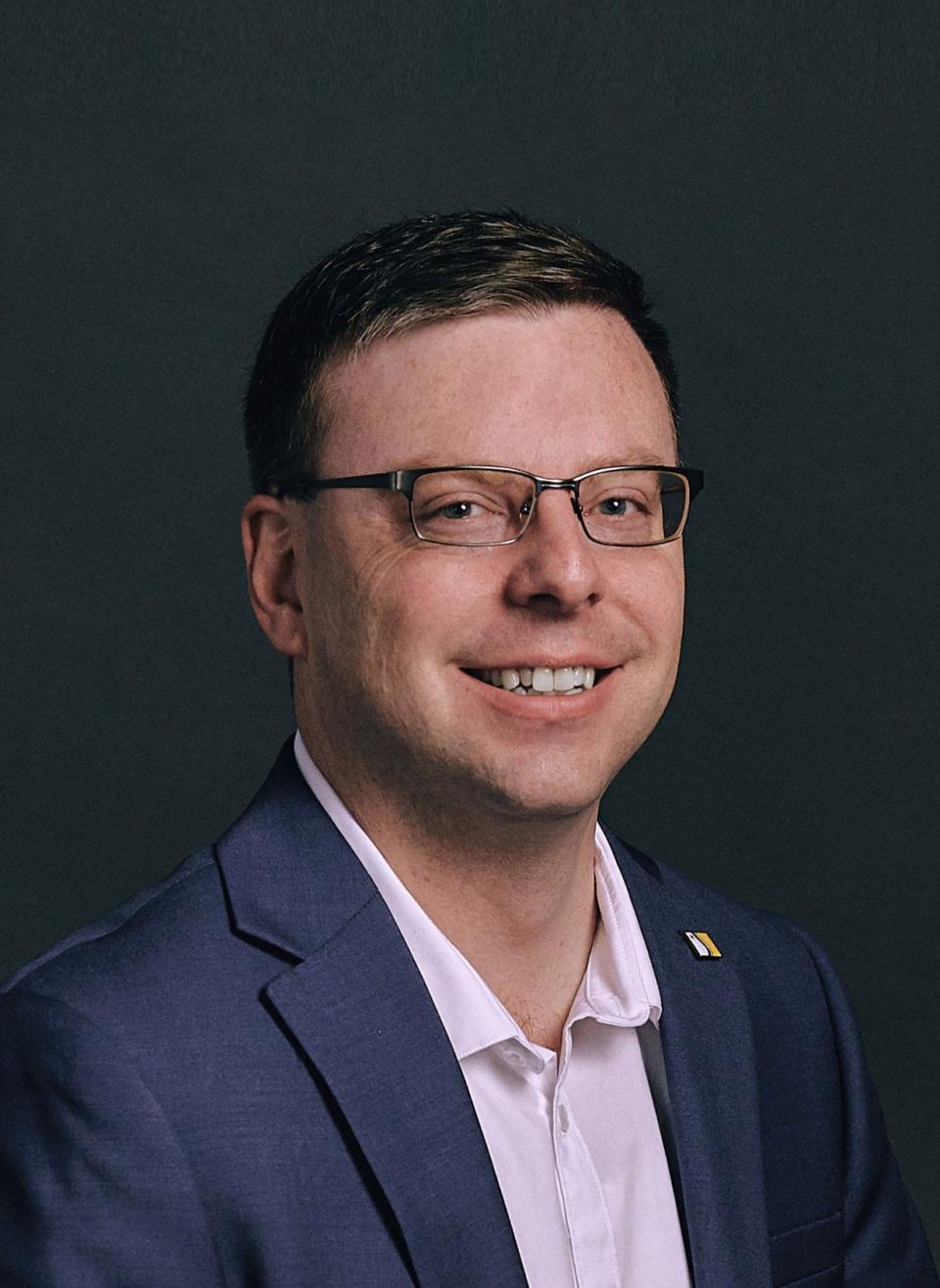
Even when Baxmeyer did sit down with the various parties in September, Mueller said that meeting was mostly to communicate the city's commitment to the project and that there were no concerns raised by Baxmeyer about the county still having questions.
"If there were questions or concerns, you would think that would be the time to raise your hand," he said.
But Baxmeyer reiterated Friday that he called for answers at that meeting about financing and a need for an overall plan for the county's response to homelessness and mental health issues.
Last-minute pleas?
The Tribune obtained emails that show some of the exchanges between public officials in December.
Once word got out that Baxmeyer had taken the item off of the agenda for the commissioners meeting, Nafziger, Mueller and Einterz began reaching out to Baxmeyer trying to convince him to put the matter back on the table.
In response, Baxmeyer sent a message on Dec. 17 outlining his inquiries about funding and changes to Medicaid laws. Mueller wrote back to say he thought those concerns were adequately addressed in the email chain and remarked that he wasn’t aware there was any question about the commissioner’s commitment to the project.
“In short, I hope we have enough information for the Commissioners to keep this moving forward,” Mueller states in an email. “When we met in September, Oaklawn was looking for reassurance from the city before taking on risk of moving forward with the center. I (and I imagine others) didn't take away from that meeting that the county's funding was at risk in any way.”
“To prevent miscommunications going forward, I agree that it would be good to get groups of stakeholders together regularly for both health and housing efforts,” Mueller wrote at the end of his message.
Dieter has told The Tribune that, at the Dec. 20 meeting, he didn’t mention the timing of when commissioners received the contract because he didn’t want to throw other public officials "under the bus."
“We probably could have conveyed that better,” he added of his remarks at the meeting, which focused almost solely on funding concerns.
What do you think?
The resulting delays caused many people to feel slighted.
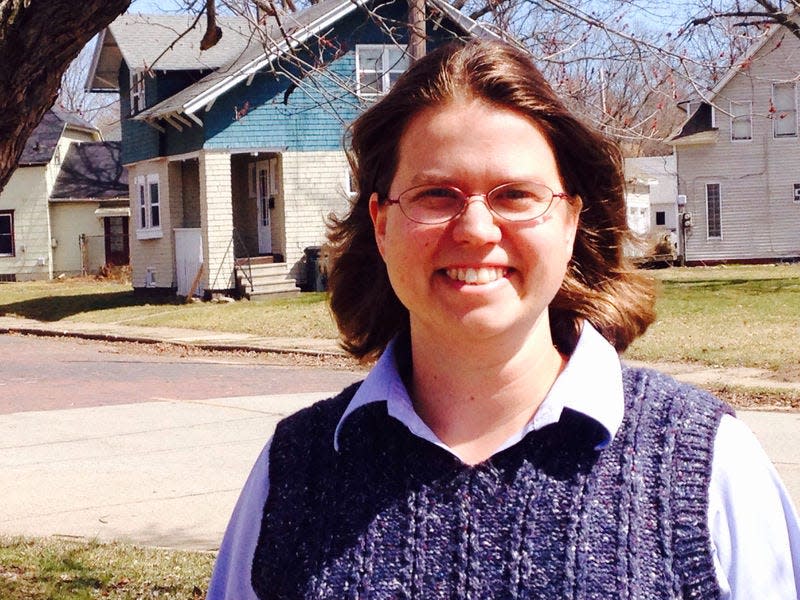
Kathy Schuth, director of the Near Northwest Neighborhood Association, recalled being at a meeting in spring 2020 where several city and county officials — including then-commissioner Andy Kostielney — committed to the project. Fast forward through a lot of unwavering support until the December 2022 commissioners meeting, and, with a "new political personality" who slowed the process, Schuth said: “It seemed and feels like kind of pulling the carpet out from under a project that had full community support.”
Darryl Heller, director of IU South Bend’s Civil Rights Heritage Center, was “furious” that the commissioners put the pause on the crisis center.
"This kind of partisan divide that we're experiencing is just making communication even harder," Heller said. “And ultimately, who loses in that are ordinary people in the community, while people stake out their positions, but they're not getting anything done that's really on behalf of the people."
Sheila McCarthy, the director of Motels4Now, a program that houses the chronically homeless in a motel on Lincoln Way West, said she has often wished for a crisis response center to help guests suffering emergencies.
In the two-and-a-half years Motels4Now has existed, many guests have been transformed by access to Oaklawn's psychiatric care and prescription medication, McCarthy said. The crisis center could broaden that impact to the larger community.
“We’ve seen the way that people are able to regulate their emotions with much greater skill when they have the stability of housing," McCarthy said, "and then with medication are able to be virtually indistinguishable from anyone else in the city."
McCarthy also makes an economic argument for mental health services.
“A night in the motel here is much cheaper than a night in jail," McCarthy said. "And staying at the motel, people are much less likely to go to jail before they were here."
She said a night at Motels4Now costs $39 for staff and rent, though that doesn't include Oaklawn's proposed presence. County officials say it costs roughly $77 a day to house a person in jail, averaged over time and accounting for shifting numbers in jail population.
Will council still support crisis center?
Even if the commissioners reach an agreement for the crisis center, would the newly elected county council vote to support it, too?
The council voted 9-0 to approve pandemic ARP funding in December 2021, but after last November’s elections, the council has four new members and has flipped from a 6-3 Democratic majority to a 5-4 Republican majority.
When asked on Wednesday, two of the newly elected Republican members of the council spoke cautiously. They say they need to know more about the center, while balancing other ARP funding requests.
One of them, Amy Drake, said funding and details for the center aren’t clear enough.
“We are also unsure whether the state will end up being involved in this issue down the road, through funding or otherwise,” Drake said.
She also feels that some members of the public have been under the wrong impression that the 24-hour center would provide long-term care.
“So there is also more to learn on exactly how it will function and if any follow-up care will be provided," Drake said. “I’m currently working on setting up a tour there at Oaklawn.”
Like Drake, new Republican council member Dan Schaetzle pointed to a series of other ARP requests within the county that the council is also weighing right now. Examples, he said, include “serious water issues” faced by Lakeville, sewer issues in Walkerton and a new brush fire engine and help paying for a new fire station in North Liberty, along with new fire wells in Warren and Clay townships.
“We are really trying to help some of the communities that have not yet been helped with ARP money with some pretty serious needs,” he said. “That's not even half of the needs that many of our communities have outside of South Bend.”
The crisis center hasn’t come up for council discussion yet, Schaetzle said, adding, “There's just a whole gamut of questions that I would have … before we would vote on that.”
Diana Hess, a returning Democrat on the council, said she remains strongly supportive of the center — and glad to see Mayor Mueller stepped in with funding to get it started. She sees a big need for the center and is ready to vote for it again. She expects the same from the three other Democrats.
Newly elected Democratic council member Bryan Tanner said he’ll support the center, seeing it as a high funding priority as an alternative to jail and to “much worse consequences.”
Fellow Democrat Mark Catanzarite would also support it, having dealt with people in crisis during his duty as a firefighter and paramedic.
“I would hope that there wouldn’t be a great deal of divisiveness," Catanzarite said. "I mean, it’s pretty well documented that these types of services are needed.”
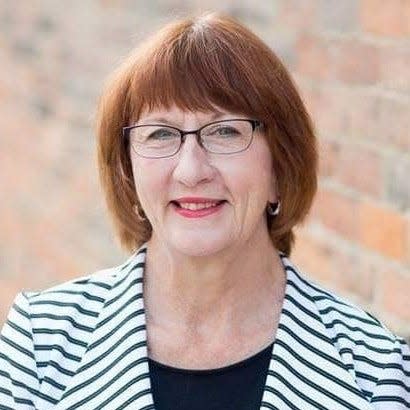
Although it remains unclear what direction the general council will take, some in the community still feel the commissioners bear responsibility for center's delay in December.
"They can't back away now and say, 'Oh it's up to the council now,' because they're the ones who gave the power to the council," Mueller said. "This is on them to figure out."
Tribune staff writers Jordan Smith, Claire Reid and Alesia I. Redding contributed to this report.
This article originally appeared on South Bend Tribune: Mental health crisis center for St. Joseph County delayed

